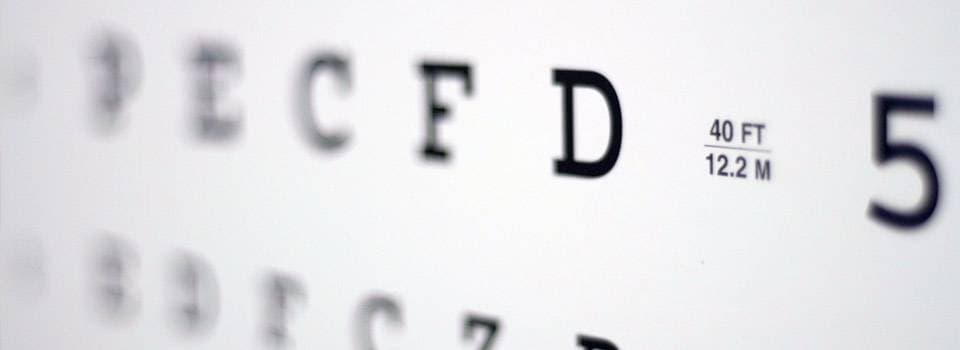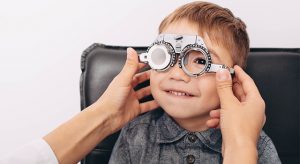Have you been told that your child has perfect 20/20 vision, but still not reaching their potential at school?
What is 20/20 vision?
Visual acuity is measured by the clarity or sharpness of vision at a distance.
The term ’20/20 vision’ ONLY means that you can see clearly at 20 feet away.
If you have ’20/40 sight’, it means that at 20 feet away, for you to see an object clearly it must be twice as large as the object a person with 20/20 sight can see.
Does 20/20 vision mean ‘perfect vision’?
No.
There are actually 17 key visual skills, including eye coordination, peripheral vision, focusing ability, depth perception, color vision, etc., that contribute to your ability to successfully perform many routine tasks and activities— reading, writing, sports, computer use, cell phone use, etc.
Additionally, some people can see well at a distance but have difficulty seeing images that are near (hyperopia). Others can see near objects clearly, but have difficulty seeing distant objects (myopia).
School vision screenings
Many schools conduct vision screenings as a service to try to identify vision problems that may affect their students’ academic performance. It is important to emphasize that these screenings are very limited as they only test for vision acuity, or 20/20 vision.
Vision screenings are NOT a substitute for a thorough eye examination performed by an eye doctor.
The vision chart used for screenings does not measure how well your child’s eyes are working for reading, writing, homework, computer use, and all other activities or tasks that require your child to use their visual skills.
Academic performance, as well as many routine tasks are dependent on the integrity of the visual system, namely the eye-brain connection, and the ability of the eyes to work together, effectively.
Whether we are reading words on the board, catching a ball, or paying attention all day at school, we rely on the connection between our eyes and our brain for the ability to complete these daily tasks with ease.
If you have any concerns about your child’s vision, schedule an eye exam with an eye doctor to examine your child’s eyes, visual skills and eye health.
SEE RELATED: Could a Child with ‘20/20 Sight’ have a Vision Problem?
What happens if a vision problem is not detected?
It is crucial for parents to understand that reliance on school vision screenings can cause many complications for a child— screenings can only uncover some vision problems, such as severe lazy eye or myopia, but cannot effectively identify most of the visual problems experienced by children.
A major concern is that parents will believe that passing a vision screening, means that a child has ‘perfect vision’. This false belief can inhibit detection and treatment of a true vision problem.
According to research, 80 percent of learning is based on processing information through the visual system. That being said, it is critical to understand that vision screenings do not suffice as adequate tests of visual acuity and functional vision skills.
The National Parent Teacher Association has reported that over 10 million children in the US suffer from vision problems that can affect learning success.
The College of Vision Development (COVD) estimates that 25 percent of all school children in the U.S. have vision problems.
Vision problems are one of the most common, handicapping conditions in childhood. Undetected vision problems can inhibit academic success, and even athletic performance.
Comprehensive eye exams
Comprehensive and regular eye exams at an eye doctor are the only effective measures of ocular and visual health. When vision problems are not detected in childhood, they can significantly affect a person throughout their whole life. Most vision problems can be corrected with glasses, contact lenses, or a program of vision therapy.
The key is to detect vision problems before they cause significant problems for your child.
The American Optometrists Association (AOA) recommends that a child’s eyes be examined before starting school and then at least every two years afterwards— and more frequently if a visual problem is identified.
If you have any concerns regarding your child’s vision or their academic performance, it is important to recognize the signs of a vision problem and schedule an appointment with an eye doctor — even if your child has ‘passed’ their school vision screening.
LEARN MORE: Guide to Vision Therapy
If you have any concerns about your child’s vision, schedule an eye exam with an eye doctor to examine your child’s eyes, visual skills and eye health.










